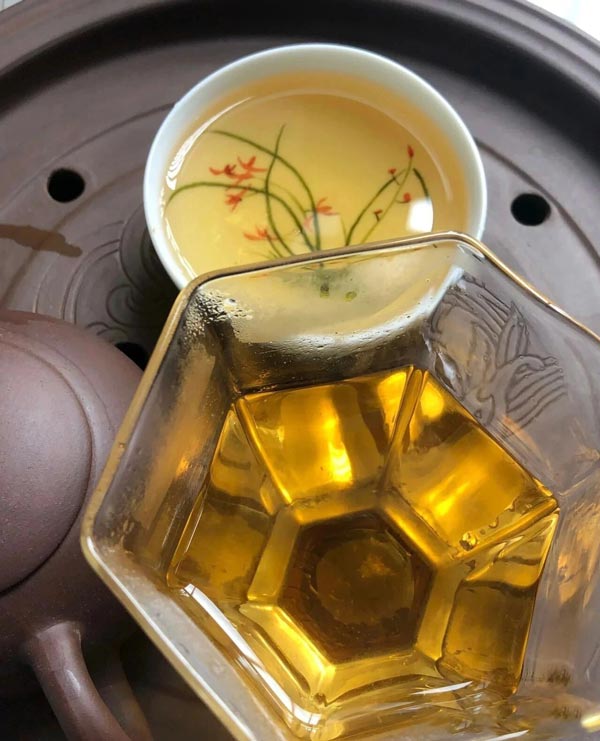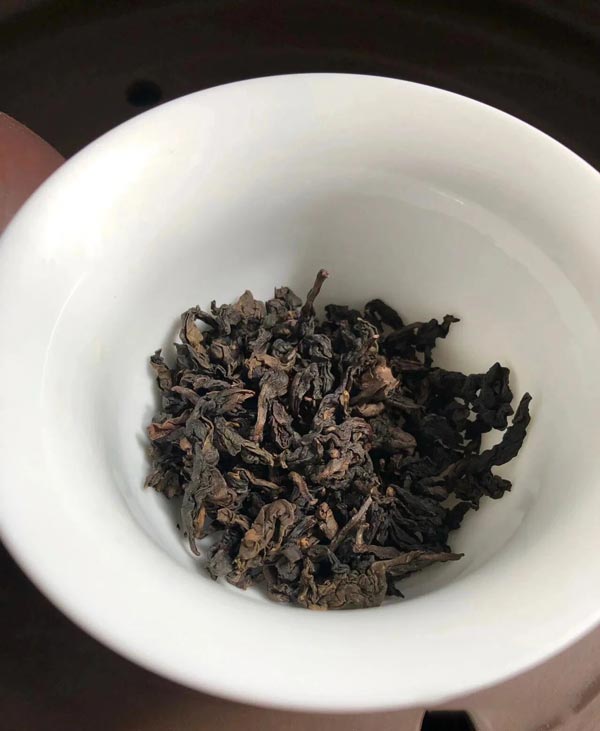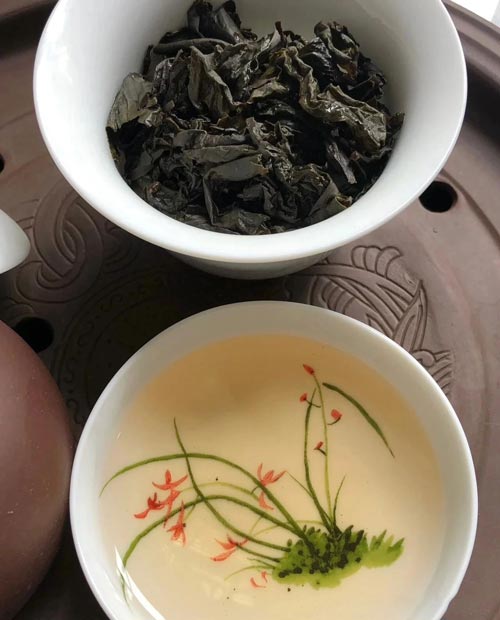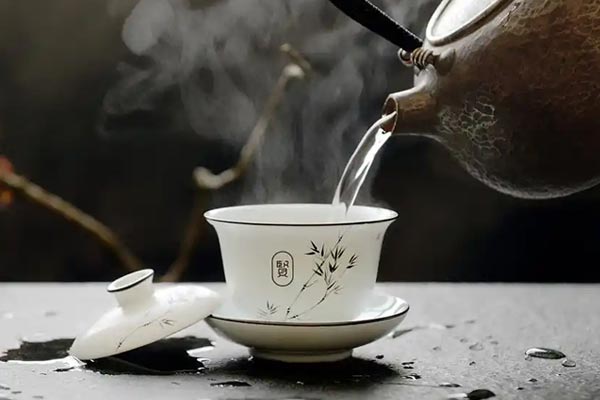Charcoal-roasted Tieguanyin is a traditional semi-fermented Tieguanyin tea roasted over charcoal. It uses high-quality raw Tieguanyin tea leaves from the traditional medium-fermentation process and is carefully roasted at 50-60°C by technicians with over ten years of experience.
Production requires precise control of the amount of charcoal ash and roasting time, with each batch taking 5-10 hours. While the yield is low, it creates a unique aroma.
• The difference between charcoal-roasted and electric-roasted tea:
The former has a superior aroma but a lower yield, while the latter relies on a set temperature and offers a more stable finished product. The raw tea leaves should be compact and dark in color. Avoid lightly fermented tea leaves.
After roasting, it needs to rest for at least two weeks. It is ready to drink after three months, and the tea reaches peak quality after six months, reaching a thick, smooth, and smooth consistency.
Charcoal-roasted Tieguanyin tea aged for more than two years is believed to possess medicinal properties.

• Definition
Charcoal-roasted Guanyin is a traditional production method. A high-quality charcoal-roasted Guanyin must possess two key elements:
- High-grade Tieguanyin raw material. This raw material requires a traditional medium-fermentation process. The currently popular lightly fermented Guanyin does not meet this requirement; forced roasting will result in a bland and flavorless tea.
- High-level roasting expertise is required, generally requiring at least ten years of roasting experience and a high level of technical skill. Inexperienced roasters can easily burn the tea.
• Advantages and Disadvantages
Charcoal roasting has disadvantages: a low yield, which is difficult to guarantee even for the most skilled roaster. Advantages: it can produce top-quality tea, and only charcoal roasting can be considered top-quality.
Why is charcoal roasting difficult?
- As the charcoal heats up, its temperature increases over time. The roaster must know how to cover the charcoal with ash at the right time and with the right amount (too little will result in too high a temperature, too much will result in too low a temperature).
- To monitor the process, the roaster must constantly monitor the roasting cage, and each batch takes 5 to 10 hours to roast; this is unbearable for active young people.
- Choosing the right type of charcoal is crucial and relies entirely on experience.
Without sufficient experience, charcoal roasting can easily cause the tea leaves to burn.
Charcoal roasting is best done in a dedicated roasting pit filled with charcoal, ensuring a consistent and even fire. Since the old roasting pits in southern Fujian have been dug up, large iron pots filled with charcoal were used in the early days. This method has the disadvantages of rapid heat depletion and insufficient subsequent heat, making it difficult to produce high-quality tea.

• Differences
Electric roasting refers to the use of a tea roasting machine, powered by electricity and controlled by a knob.
Advantages of electric roasting:
- As long as the roaster is skilled, the yield can be 100%;
- It is easy for new roasters to master and explore.
Disadvantages: The results are less impressive, and the unique aroma of charcoal roasting is lacking. Why electric roasting is easy: All you need to do is know the optimal temperature setting and when to raise or lower the temperature, and you're good to go. The prerequisite is knowing the ideal temperature. Too high a temperature will produce a burnt smell, and too low a temperature is also unsatisfactory.

• Quality Changes
After more than a year, it's best to re-roast the tea briefly.
Generally, after two years, charcoal-roasted Guanyin tea has medicinal properties and is an excellent remedy for gastrointestinal discomfort.
Note: Southern Fujian has a long tradition of traveling across the seas in Chinese history. During that time, when medical care and medicine were scarce, our ancestors often brought aged Guanyin tea with them. Chinese in Singapore, Malaysia, Indonesia, and other places still maintain the tradition of drinking roasted Guanyin tea and aged tea.

%20--%3e%3c!DOCTYPE%20svg%20PUBLIC%20'-//W3C//DTD%20SVG%201.1//EN'%20'http://www.w3.org/Graphics/SVG/1.1/DTD/svg11.dtd'%3e%3csvg%20version='1.1'%20id='图层_1'%20xmlns='http://www.w3.org/2000/svg'%20xmlns:xlink='http://www.w3.org/1999/xlink'%20x='0px'%20y='0px'%20width='256px'%20height='256px'%20viewBox='0%200%20256%20256'%20enable-background='new%200%200%20256%20256'%20xml:space='preserve'%3e%3cpath%20fill='%23FFFFFF'%20d='M194.597,24.009h35.292l-77.094,88.082l90.697,119.881h-71.021l-55.607-72.668L53.229,232.01H17.92%20l82.469-94.227L13.349,24.009h72.813l50.286,66.45l58.148-66.469V24.009z%20M182.217,210.889h19.566L75.538,44.014H54.583%20L182.217,210.889z'/%3e%3c/svg%3e)




